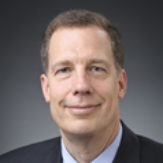Dr. Paul Madsen, professor emeritus in urology at the University of Wisconsin School of Medicine and Public Health, grew up on a farm in rural Denmark.
Although he left his homeland almost six decades ago to pursue opportunities in the United States, he’s remained a Dane at heart.

Earlier this month, he and his wife, Dr. Renate Madsen, honored their family’s heritage and expressed their gratitude for the education they and their children received at UW-Madison with a $2 million gift to establish the Paul and Renate Madsen Professorship in Danish.
“Paul and Renate Madsen’s gift is an extraordinary legacy,” said John Karl Scholz, dean of the College of Letters & Science. “The Madsen Professorship will encourage scholarship and research to preserve our historic strengths in Danish studies. Thanks to this gift, future generations of Badgers will be able to learn about this historically important language and culture for years to come.”
UW-Madison boasts a strong tradition of teaching and research in Danish language and culture. This is due in no small part to the state of Wisconsin being home to large populations of immigrants from Denmark, Holland and Germany during the 19th century. Danish culture, moreover, holds a unique place in the history of Europe, having influenced the cultures of Norway, Sweden and Iceland, while inspiring scholarship in Danish design and a passion for Scandinavian heritage among Americans.
Yet, budget reductions have fallen heavily on the languages and the humanities, with little outside funding to preserve the university’s historic strengths in these disciplines, Scholz added. Many universities are innovating language, literature and culture departments to safeguard teaching and research in the disciplines.
“The Madsen’s gift ensures continued excellence in Danish studies, which will ultimately strengthen our German and Scandinavian programs,” Scholz said.
The Madsen family’s story is the classic European immigrant tale, said Tom Madsen (BBA’78, Marketing; MS’79, Finance, Investment and Banking), the couple’s son. Paul was the first from his family to go to college, attending the University of Copenhagen School of Medicine while his brother took over the family farm. During a fellowship at the University of Heidelberg, Paul met his future wife, Renate, a German medical student.
The couple looked for opportunity and came to Madison, where Paul became chief of urology at the William S. Middleton Veterans Hospital. He was an active surgeon and researcher for more than 30 years, serving at the VA hospital and as a UW-Madison professor of surgery. Renate, an anesthesiologist, also joined the medical school faculty and UW Hospital staff in 1962.

Thanks to this gift, future generations of Badgers will be able to learn about this historically important language and culture for years to come.
“During her 33 years as a faculty member, she served as a positive role model for female medical students and physicians in a male-dominated environment,” said daughter Karin Madsen Drescher (BA’79, German; MD’84, Medicine).
Growing up, the family’s heritage was a central part of their home and family life.
“We were raised German-American,” said daughter Annette Madsen White (BS’87, Nursing).
The family still speaks German at home. And Paul remained an active Dane, training 24 Danish physician-fellows at UW-Madison and initiating, with the local faculty in Copenhagen, an annual urological course at the University of Copenhagen. For this, Denmark’s Queen Margrethe made him a Knight of the Order of Dannebrog, one of the two Danish royal orders of chivalry.
“Denmark is close to his heart,” Tom said of his father.
The family considers the gift a thank you to the university. Paul and Renate’s education at their European universities was nearly free and tuition at UW-Madison was affordable for the couple’s three children.
Now, five of the Madsen’s grandchildren have continued the Badger tradition, and their philanthropy is a way to ensure future generations will continue to have access to outstanding educational opportunities.

